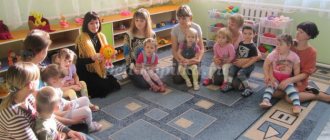Forms of work
The class teacher's work plan involves the use of various options for working with parents aimed at strengthening the interaction between family and school. It is important to involve them in leisure extracurricular activities and organize cooperation between teachers and children. To achieve maximum results, the class teacher must work within the system, that is, in the totality and interconnection of various educational activities. Let us highlight the following areas of his activity:
- studying the class team and its members to obtain medical, demographic, psychological, pedagogical information (family, living conditions of the student, financial capabilities of parents, level of development, state of health, training and education, individual characteristics);
- planning educational activities (thinking through a plan for interaction with parents, students, colleagues with goals and objectives);
- thinking through, organizing, changing different types of activities according to the assigned tasks and plans (organizing class hours, creative activities, hikes, excursions, parent meetings);
- informing parents of schoolchildren about the progress and behavior of their children (pedagogical education);
- analysis and assessment of the results of education (diagnosis of joint activities of school and family).
You may be interested in: Leushinsky Monastery: creation, death, rebirth
What to consider
The family visit sheet from the class teacher is given to the school principal. He, in turn, makes a decision on further actions without violating the constitutional rights of the family. Recently, many parents have a negative attitude towards the fact that teachers come to them. They believe that the purpose of a class teacher visiting a family is to recognize it as dysfunctional and remove the child from the home. This is why many mothers and fathers simply do not allow teachers to enter their home, citing constitutional rights to privacy as the reason for such actions.
Joint events
These forms of work by parents and teachers are especially relevant for elementary schools. In the class, an activist is selected from fathers and mothers, who are entrusted with the task of organizing various holidays and events. For example, after first-graders complete their acquaintance with the ABC book, parents, together with the teacher, organize a “Farewell to the ABC book” holiday for them. In addition to the ceremonial part, during which children, the class teacher, and parents demonstrate their creative abilities, a joint tea party with games and competitions is held. This option for spending joint leisure time has a positive effect on the cohesion of the class team.
Let's sum it up
As part of the modernization of domestic education, issues related to the interaction between school and family are becoming relevant. Child psychologists note that the full development of a child is only possible if all his endeavors are supported by his parents.
That is why, within the framework of the Federal State Educational Standard, it is considered mandatory to carry out various projects in which not only children, but also their fathers and mothers are participants. In elementary school, the most effective forms are those that allow parents to be actively involved in class and school events, holidays, and field trips. The class teacher working in the middle classes tries to organize lectures and master classes for the fathers and mothers of their pupils, aimed at addressing important issues in the upbringing of teenagers.
Mentors of high school students devote most of their meetings with parents to career guidance, as well as psychological issues related to preparation for final exams.
Source
Door to door tour
The purpose of a family visit by a class teacher may vary. Psychologists consider this form of work to be the most effective, since there is personal communication between the teacher and the mother (father) of his ward.
The class teacher studies the student’s workplace and analyzes his living conditions. He talks with his parents about his character, inclinations, interests, and gives useful advice on doing his homework.
The purpose of a class teacher visiting a family may not be very pleasant. For example, a child is absent from school for a long time, and neither he nor his representatives answer the teacher’s calls. In this case, an act of visiting the family by the class teacher is drawn up, which the parents must sign. Based on this, a decision is made on subsequent actions. In particular, the class teacher can initiate a call to the guardianship and trusteeship authorities to the family.
Important aspects
You may be interested in: What is the name of the alloy of copper and nickel?
The modern family is formed and exists in a new social situation. As the foundation of the moral ideals of adolescents and children, the educational institution acts as the guarantor of their individual and social security. The family and environment influence the moral development of the child’s personality. It is the older generation that is an important link in the transmission of historical and social experience, business and emotional relationships to the younger generation.
Parents who do not have adequate information about the individual and age characteristics of their children carry out their educational functions “blindly.” This approach rarely brings positive results. The problems of single-parent families are the lack of strong interpersonal ties between fathers and children. Problems can only be solved through close cooperation between parents and teachers.
You will be interested: Bryansk State Agrarian University: professions, admission
Other interaction options
You may be interested: Aul is... The meaning of the word
The parent lecture hall is designed to introduce mothers and fathers to issues of education, improve their pedagogical culture, and help in solving specific problems.
An excellent option for interaction between the class teacher and the parents of his students is role-playing games. This form of creative collective activity allows us to identify the level of pedagogical skills. In particular, the theme of role-playing games can be as follows:
- "Family Council";
- "Morning in the house";
- "Student's workplace."
The methodology involves identifying the topic, the number of participants, dividing roles, discussing various options and positions. Both positive and negative options for resolving the situation must be considered, and then the optimal course of action must be chosen.
A debate is a reflection on the problems of education, which helps to improve the pedagogical culture of parents. It is held in a relaxed atmosphere, giving all participants the opportunity to join in the discussion of the chosen problem.
Meetings with the administration
This form of work is especially relevant for graduate classes. For example, after the introduction of a new form of final certification for ninth-grade students, the topic of one of these meetings could be the introduction of the deputy director for educational work to mothers and fathers of graduates with the features of the OGE. A presentation is being prepared for the meeting, which notes all the regulations related to the time frame of the examination session, as well as the selection of subjects to be taken in the form of the OGE. The head teacher pays special attention to the assessment criteria, since they differ in different subject areas.
The class teacher prepares a class list so that parents sign the form, confirming their awareness of the organization of the final certification.
A similar meeting, the purpose of which is to familiarize parents with the procedure for conducting final exams in the form of the Unified State Examination, is organized for 11th grades.
Networking visits
Of course, not every schoolchild from a large family is a poorly performing student or a persistent violator of discipline. There are also families with 4-5 children who maintain friendly relations with teachers. In this case, the purpose of the class teacher’s visit to the family is to discuss some specific issues, for example, regarding the organization of a school event or excursion. A teacher can also stop by to check on a sick student and explain his homework in his subject.
According to the rules of the Federal State Educational Standard, once every quarter or every six months (depending on the work plan of the educational institution), a report from the class teacher on visits to the families of students is submitted to the school administration; it affects the target indicators of the teacher’s work (affects the amount of wages).




